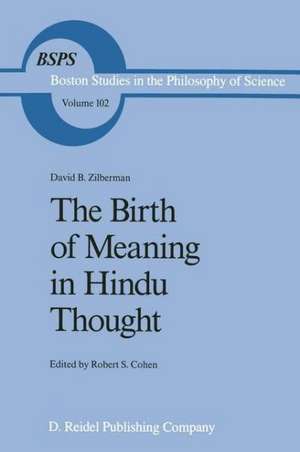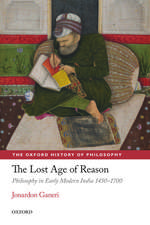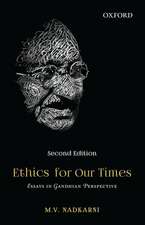The Birth of Meaning in Hindu Thought: Boston Studies in the Philosophy and History of Science, cartea 102
Autor David B. Zilberman Editat de Robert S. Cohenen Limba Engleză Paperback – 8 oct 2011
Din seria Boston Studies in the Philosophy and History of Science
- 18%
 Preț: 944.19 lei
Preț: 944.19 lei - 15%
 Preț: 646.75 lei
Preț: 646.75 lei - 15%
 Preț: 646.75 lei
Preț: 646.75 lei - 15%
 Preț: 699.28 lei
Preț: 699.28 lei - 18%
 Preț: 736.50 lei
Preț: 736.50 lei -
 Preț: 500.02 lei
Preț: 500.02 lei - 15%
 Preț: 643.16 lei
Preț: 643.16 lei - 15%
 Preț: 650.69 lei
Preț: 650.69 lei - 15%
 Preț: 634.18 lei
Preț: 634.18 lei - 15%
 Preț: 642.68 lei
Preț: 642.68 lei -
 Preț: 391.40 lei
Preț: 391.40 lei -
 Preț: 383.33 lei
Preț: 383.33 lei - 18%
 Preț: 944.19 lei
Preț: 944.19 lei - 18%
 Preț: 955.56 lei
Preț: 955.56 lei - 15%
 Preț: 643.65 lei
Preț: 643.65 lei - 18%
 Preț: 1229.10 lei
Preț: 1229.10 lei - 18%
 Preț: 1238.23 lei
Preț: 1238.23 lei - 18%
 Preț: 951.29 lei
Preț: 951.29 lei - 18%
 Preț: 1223.25 lei
Preț: 1223.25 lei - 18%
 Preț: 1225.79 lei
Preț: 1225.79 lei - 18%
 Preț: 1226.42 lei
Preț: 1226.42 lei - 18%
 Preț: 1236.82 lei
Preț: 1236.82 lei - 15%
 Preț: 644.49 lei
Preț: 644.49 lei - 18%
 Preț: 1231.78 lei
Preț: 1231.78 lei - 15%
 Preț: 644.30 lei
Preț: 644.30 lei - 18%
 Preț: 957.62 lei
Preț: 957.62 lei - 18%
 Preț: 1222.49 lei
Preț: 1222.49 lei - 18%
 Preț: 947.50 lei
Preț: 947.50 lei - 18%
 Preț: 1833.95 lei
Preț: 1833.95 lei - 18%
 Preț: 1227.99 lei
Preț: 1227.99 lei - 18%
 Preț: 947.35 lei
Preț: 947.35 lei
Preț: 392.75 lei
Nou
Puncte Express: 589
Preț estimativ în valută:
75.15€ • 78.47$ • 62.06£
75.15€ • 78.47$ • 62.06£
Carte tipărită la comandă
Livrare economică 16-30 aprilie
Preluare comenzi: 021 569.72.76
Specificații
ISBN-13: 9789401071413
ISBN-10: 9401071411
Pagini: 396
Ilustrații: 410 p.
Dimensiuni: 152 x 229 x 21 mm
Greutate: 0.53 kg
Ediția:Softcover reprint of the original 1st ed. 1988
Editura: SPRINGER NETHERLANDS
Colecția Springer
Seria Boston Studies in the Philosophy and History of Science
Locul publicării:Dordrecht, Netherlands
ISBN-10: 9401071411
Pagini: 396
Ilustrații: 410 p.
Dimensiuni: 152 x 229 x 21 mm
Greutate: 0.53 kg
Ediția:Softcover reprint of the original 1st ed. 1988
Editura: SPRINGER NETHERLANDS
Colecția Springer
Seria Boston Studies in the Philosophy and History of Science
Locul publicării:Dordrecht, Netherlands
Public țintă
ResearchCuprins
I / Hindu Systems of Thought as Epistemic Disciplines.- I. The Science of Philosophies.- II. The Mechanism of Organization.- III. The Structural Design.- IV. Para-Methodology.- V. Modality and Modalization.- VI. The Self-Developing Culture and Text.- VII. Six Epistemic Disciplines Unfolding Into One Another.- VIII. Modal Semiotics and the Categories of Philosophical Thinking.- IX. Six Entries into the World of Philosophical Reflections.- X. Summa Philosophiae.- II / The Birth of ‘Meaning’: A Systematic Genealogy of Indian Semantics.- I. Segregation of Meaning and Language.- II. The Rgveda in the Making: A Meaningful Activity Without ‘Meaning’.- III. The Nirukta: A Knot of Semantic and Etymological Problems.- IV. P?nini: Separating and Interconnecting Language and Logic.- V. The Individual and the Universal in Language and Knowledge.- III / Dialectics in Kant and in the Ny?ya-S?tra: Toward the History of the Formation of Formal Logical Thinking.- IV / The Canonical Self in the World of Knowledge: A Note on Ny?ya Gnoseology.- V / Revelation in Advaita Ved?nta as an Experiment in the Semantic Destruction of Language.- I. Theoretical Basis of the Possibility of Coming to Know Brahman (Pary?ya).- II. Intuitive Basis of the Possibility of Coming to Know Brahman (Prayojana).- III. Pary?ya of the First Stage of Reflection from the Structure of the Text to the Nature of Brahman: The Theory of False Attribution and its Sublation (Transcendence).- IV. Prayojana of the First Stage of Reflection: The Intuition of False Attribution and its Sublation (Transcendence).- V. Pary?ya of the Second Stage of Reflection: The Theory of Brahman Shown in a Metaphoric Occurrence (Laksan?vritti).- VI. Prayojana of the Second Stage of Reflection: Intuition of Brahman Shown by theMethod of Metamorphic Definition.- VII. Language Inappropriateness Exposed and Brahman Demonstrated by the Netiv?da Method: The Theory of Intuition (Pary?ya).- VIII. Prayojana of the Vedic Realization by the Netiv?da Method: The Intuition of a Theory.- VI / Is The Bodhisattva a Skeptic? On the Trichotomy of ‘Indicative’, ‘Recollective’, and ‘Collective’ Signs.- VII / Hindu Values and Buddhism: An Exemplary Discourse.- I. Methodological.- II. Theoretical.- II.1. The Mim?msa Normology.- VIII / Understanding Cultural Traditions Through Types of Thinking.- I. Level of Absolute Reality.- II. Level of Phenomenation.- III. Level of Absolute Irreality.- IX / The Family of Hindu ‘Visions’ as Cultural Entities.- Notes and References.- Bibliography: Selected Works of David Zilberman.













